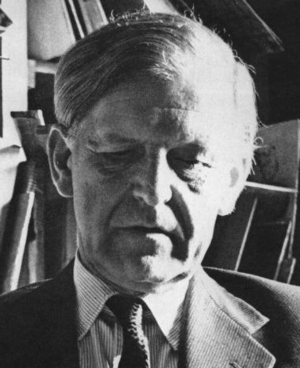Duncan Oppenheim
( businessman) | ||||||||||
|---|---|---|---|---|---|---|---|---|---|---|
 | ||||||||||
| Born | 6 August 1904 St Helens, Lancashire | |||||||||
| Died | January 2003 (Age 98) London, England | |||||||||
| Nationality | UK | |||||||||
| Alma mater | Repton School | |||||||||
| Spouse | • Joyce Mitcheson • Susan May Macnaghten | |||||||||
Attended two Bilderbergs in the 1950s as Chairman of British American Tobacco, and the 1968 Bilderberg as chairman of Chatham House
| ||||||||||
Sir Duncan M. Oppenheim was a UK business executive [1] who was chairman of British American Tobacco (BAT) from 1953 to 1966 and of the Royal Institute of International Affairs (Chatham House) from 1966 to 1971. He attended the 1955, 1956 and 1968 Bilderberg meetings.
Career
He went to BAT as a solicitor in 1934 and, after working briefly in China, returned to London, becoming a board member in 1943, deputy chairman in 1947, and vice chairman in 1949. In 1953 he became chairman, sitting until 1966. Despite international turmoil, during Oppenheim's years at the helm the company continued to grow, particularly in Latin America, and pursued a policy of moving cigarette production nearer to local markets.[2]
Oppenheim believed that BAT had a role to play in encouraging British businesses and political leaders to open up their markets. As chairman of the Confederation of British Industry's overseas investments committee, Oppenheim commissioned a report by Cambridge economists, published in 1967, which found that every £100 spent by British companies when setting up plant overseas produced an immediate gain of £9 in exports from Britain.[2]
He was chairman of the British National Committee of International Chambers of Commerce and was an active member of the CBI. He was chairman of the Royal Institute of International Affairs (Chatham House) from 1966 to 1971.[2]
Other positions
He was on the committee set up after the war to deal with claims under the Distribution of German Enemy Property Act. [2]
He took an active part in arts administration, becoming chairman of the council of the Royal College of Art from 1956 to 1972, during which period the College received its royal charter.[3]
Oppenheim was chairman of the Council of Industrial Design from 1960 to 1972; a member of the advisory committee of the Victoria and Albert Museum from 1967 to 1979; and a member, and later deputy chairman, of the Crafts Council from 1972 to 1983.[2]
Oppenheim was, at various times, a director of Lloyds Bank and the Equity and Law Life Assurance Society. He was chairman of the Tobacco Securities Trust from 1969 to 1974, and deputy chairman of the Commonwealth Development Finance Company from 1968 to 1974.[2]
Events Participated in
| Event | Start | End | Location(s) | Description |
|---|---|---|---|---|
| Bilderberg/1955 September | 23 September 1955 | 25 September 1955 | Germany Bavaria Garmisch-Partenkirchen | The third Bilderberg, in West Germany. The subject of a report by Der Spiegel which inspired a heavy blackout of subsequent meetings. |
| Bilderberg/1956 | 11 May 1956 | 13 May 1956 | Denmark Fredensborg | The 4th Bilderberg meeting, with 147 guests, in contrast to the generally smaller meetings of the 1950s. Has two Bilderberg meetings in the years before and after |
| Bilderberg/1968 | 26 April 1968 | 28 April 1968 | Canada Mont Tremblant | The 17th Bilderberg and the 2nd in Canada |
References
- ↑ https://www.vads.ac.uk/digital/collection/DIAD/id/7503/
- ↑ Jump up to: a b c d e f The Telegraph, Obituaries, Sir Duncan Oppenheim, 11 Jan 2003. https://www.telegraph.co.uk/news/obituaries/1418523/Sir-Duncan-Oppenheim.html
- ↑ Prideaux, Michael. The Independent: Obituaries, Sir Duncan Oppenheim - BAT chairman and arts administrator, Wednesday, 12 February 2003.